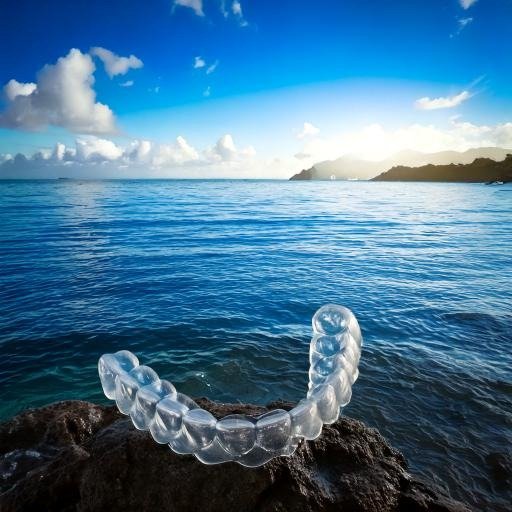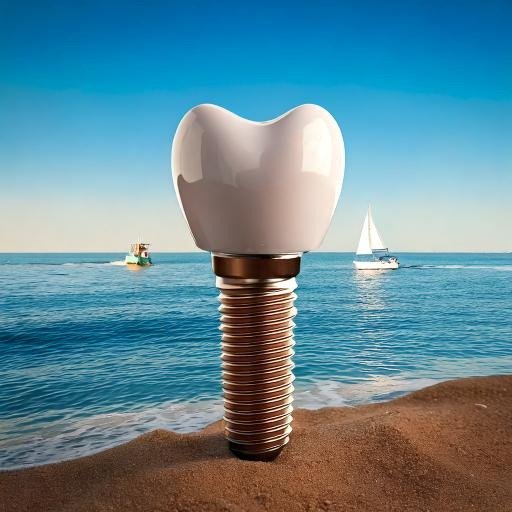Dental implants are one of the most effective and long-lasting solutions for replacing missing teeth. However, understanding how long a dental implant lasts and the factors that influence its longevity is essential for anyone considering the procedure. In this article, we will explore everything you need to know about the lifespan of dental implants, how to care for them, and what to do if they need attention.
How Long Do Dental Implants Last?
Dental implants are a highly reliable and long-lasting solution for replacing missing teeth. With proper care, dental implants can last for many years, often between 10 to 20 years or more. The materials used, particularly the titanium post, make the implants strong and durable, and the fact that they fuse with the jawbone (a process called osseointegration) adds to their longevity. However, several factors contribute to the overall lifespan of a dental implant, and maintaining the implant properly is key to ensuring it lasts as long as possible.
In dental implants in Horley, many patients report that their implants last over two decades. The implant’s titanium post itself is resistant to corrosion and wear, which is one of the reasons titanium is the preferred material for dental implants. However, while the implant itself can last a lifetime in some cases, the crown or prosthetic tooth placed on top of the implant may need to be replaced every 10 to 15 years due to wear and tear from daily functions like chewing and biting. The crown is typically made from porcelain or zirconia, materials designed to closely resemble natural teeth but are subject to some degradation over time.
Several factors influence how long dental implants last. These include the quality of the initial procedure, oral hygiene habits, lifestyle factors, and ongoing maintenance. A dental implant’s success depends on a variety of external factors, such as the patient’s ability to maintain good oral hygiene practices and avoid harmful habits like smoking. Proper care and regular dental check-ups are crucial for prolonging the life of dental implants and ensuring that they continue to function well for many years.
Patients who take care of their dental implants in Horley and follow their dentist’s recommendations tend to experience fewer complications and a longer-lasting result. In contrast, neglecting oral care or engaging in habits that cause stress on the implant, such as teeth grinding or excessive use of the affected tooth, can lead to premature implant failure or the need for adjustments.
In the following sections, we will explore the factors that influence the longevity of dental implants and the ways in which patients can care for their implants to extend their lifespan.
The Average Lifespan of a Dental Implant
The average lifespan of a dental implant is significantly longer than that of other dental prosthetics like bridges or dentures. Dental implants are designed to be a permanent solution, and when properly maintained, they can last for 20 years or more. The titanium post that forms the base of the implant integrates with the jawbone, creating a stable and durable foundation for the artificial tooth or crown.
The crown placed on the implant, however, may not last as long as the post itself. Due to factors such as regular wear and tear, exposure to food, drink, and abrasive actions, crowns may need to be replaced every 10 to 15 years. Fortunately, the titanium post, which makes up the bulk of the implant, often lasts for decades with proper care. Titanium is known for its durability, biocompatibility, and resistance to corrosion, all of which contribute to its long lifespan.
Several factors play a significant role in determining the average lifespan of a dental implant. One of the most important factors is the quality of the initial procedure. Skilled dental professionals who use high-quality materials during the implant process are more likely to achieve successful and long-lasting results. In dental implants in Horley, professionals are highly trained in implantology, ensuring that the procedure is done correctly and effectively.
In addition to the procedure itself, a patient’s overall health and lifestyle choices also have a significant impact on how long the implant will last. Patients with good oral hygiene and those who maintain a healthy lifestyle by avoiding smoking and drinking excessive alcohol tend to have implants that last longer. On the other hand, conditions like diabetes or osteoporosis can negatively impact the healing process and decrease the longevity of dental implants. Smoking, in particular, is known to increase the risk of implant failure due to poor blood circulation and delayed healing.
Regular check-ups and professional cleaning are also crucial in maintaining the health of dental implants. During these visits, your dentist can monitor the implant’s condition, detect any early signs of complications, and address any concerns before they become more serious.
Factors Affecting the Longevity of Dental Implants
Several factors play a crucial role in determining how long dental implants will last. Some of these factors are within the control of the patient, while others depend on the quality of the initial procedure and the patient’s overall health. Here are the key factors that influence the longevity of dental implants in Horley:
1. Oral Hygiene and Care
Proper oral hygiene is perhaps the most significant factor in ensuring the longevity of your dental implants. Plaque build-up around the implant and gums can lead to infection, inflammation, and peri-implantitis (inflammation of the tissue surrounding the implant). This can ultimately cause the implant to fail. Brushing your teeth twice a day with fluoride toothpaste, flossing daily, and using mouthwash regularly can help prevent plaque build-up and keep your implants in good condition.
Patients should also avoid using the implant to chew hard or sticky foods, as this can place unnecessary stress on the implant and crown, leading to potential damage or loosening. Using a soft-bristled toothbrush and avoiding abrasive toothpaste will help keep your implants in good shape.
2. Jawbone Health
The success of dental implants relies heavily on the health of the jawbone. The titanium post of the implant fuses with the jawbone in a process known as osseointegration. This process provides stability and support for the implant. If the jawbone is too thin or weak, osseointegration may fail, causing the implant to fail as well.
Patients with insufficient bone density may require bone grafting before implant placement to ensure the implant will integrate successfully. Maintaining a healthy diet rich in calcium and vitamin D can support bone health, as can the use of supplements if necessary.
3. Bite and Occlusion
The way your teeth fit together (your bite) plays an important role in the longevity of dental implants. If you suffer from misaligned teeth or bruxism (teeth grinding), excess pressure may be applied to the implant, leading to premature wear or failure. Addressing any bite issues with your dentist can help reduce strain on the implant and ensure its long-term success. A custom mouthguard is often recommended for patients who grind their teeth, particularly at night.
4. Quality of the Initial Procedure
The success of a dental implant largely depends on the quality of the initial procedure. A skilled dental professional will ensure the implant is placed correctly and the materials used are of the highest quality. The implant site must be carefully evaluated to ensure that there is adequate bone structure, and the procedure should be performed using precision techniques to prevent complications.
Care and Maintenance to Extend the Life of a Dental Implant
Proper care and maintenance are essential for extending the lifespan of dental implants in Horley. By following these tips, patients can ensure that their implants remain in good condition for many years:
Follow a Regular Oral Hygiene Routine
Brush your teeth twice a day with fluoride toothpaste and floss at least once a day. This prevents plaque build-up, which can lead to gum infection or peri-implantitis (inflammation around the implant).Visit Your Dentist Regularly
Schedule regular check-ups and cleanings to monitor the health of your implants. Your dentist can remove any plaque or tartar build-up and check for early signs of issues such as gum disease.Wear a Mouthguard for Bruxism
If you grind your teeth, wearing a mouthguard at night can help protect your implants from excessive wear and tear.Avoid Hard Foods
Hard foods can place unnecessary stress on the implant and crown, potentially causing damage. Stick to softer foods to avoid this risk.Quit Smoking
Smoking can impair healing and increase the risk of gum infection around the implant. Quitting smoking can significantly improve the lifespan of your dental implants.
What to Do if a Dental Implant Becomes Loose or Damaged
Although dental implants are designed to be durable, issues can arise that may cause them to become loose or damaged. Here’s what you should do if this happens:
See Your Dentist Immediately
If you notice that your implant feels loose or painful, or if your crown is damaged, it is crucial to see your dentist immediately. Prompt attention can prevent further damage and increase the chances of saving the implant.Avoid Using the Affected Tooth
Until you can see your dentist, avoid chewing or biting with the affected implant. This will reduce the risk of causing further damage.Temporary Solutions
In some cases, your dentist may recommend a temporary solution, such as a new crown or a stabilization procedure, while they assess the situation.
Temporary vs. Permanent Dental Implants
Temporary dental implants are often used as a placeholder while the permanent implant is being prepared. Temporary implants are placed in the jawbone and serve as a temporary anchor for a prosthetic tooth. These are usually replaced with permanent implants once the site has fully healed.
Permanent implants, on the other hand, are designed to last for many years, providing a more stable and long-lasting solution. The material used for permanent implants, typically titanium, integrates well with the bone, providing a secure foundation for the prosthetic tooth.
Understanding the difference between temporary and permanent implants will help you make informed decisions about your treatment options.
When Is It Necessary to Replace a Dental Implant?
While dental implants are designed to be long-lasting, certain factors may require them to be replaced. If the implant becomes infected, fails to integrate with the bone, or experiences significant damage, replacement may be necessary. Regular dental check-ups and proper care can reduce the need for replacement.





